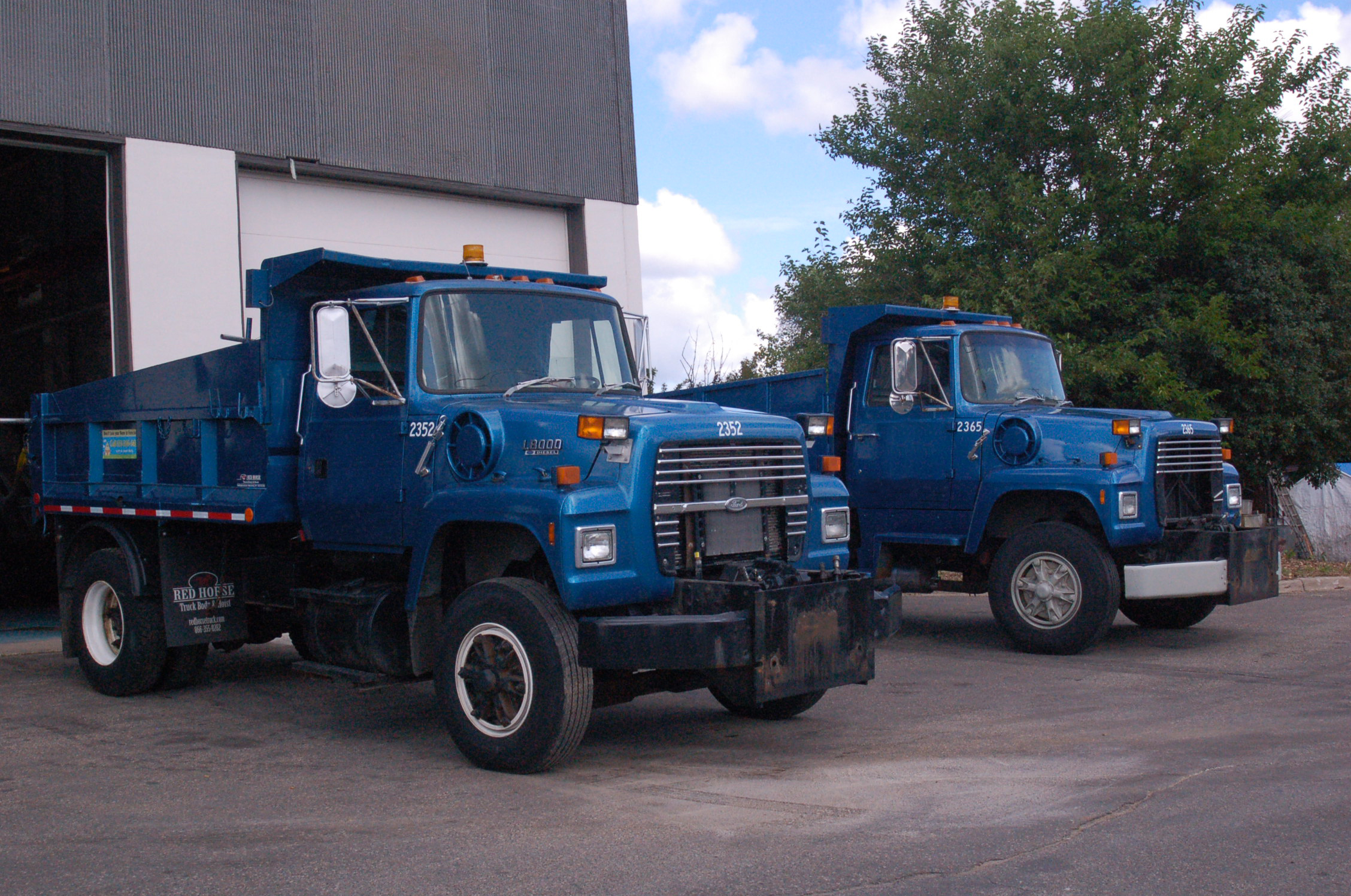Replacing city vehicles to reduce emissions in Quincy, Washington
Microsoft has a commitment to be carbon negative by 2030 and reduce emissions from our operations. In addition to that commitment for our own operations including the datacenters in Quincy, it is important for Microsoft to look beyond our own operations to help the communities in which we operate meet their own climate ambitions.
Like in most communities across the globe, the majority of health risk from diesel pollution in Quincy is attributed to mobile sources (school buses, heavy-duty equipment, and trucks). This is largely because diesel vehicles can be in service for many decades without being upgraded to modern standards.
Replacing vehicles to reduce mobile diesel emissions
In the fall of 2019, Microsoft issued a grant to partner organization Environmental Initiative and their Project Green Fleet to help replace older vehicles in and around Quincy that contribute to nitrogen oxide (NOx) and particulate emissions. The grant covered about one-third of the total project cost and accelerated the transition to cleaner vehicles. Project Green Fleet works to replace older, inefficient diesel engines in vehicles and heavy-duty equipment, helping equipment owners save money, reduce diesel exhaust emissions, and protect the health of the community. “Project Green Fleet supports the environment, economy, and public health through thoughtful partnerships based in the same core value—advancing the vitality of local communities,” said Bill Droessler, Program Development Officer of Environmental Initiative.
Through this project, Environmental Initiative and Microsoft worked with the City of Quincy to identify opportunities to reduce mobile diesel emissions. This type of project is one of the quickest, most cost-effective ways of reducing diesel pollution and is done in communities across the United States, frequently with the support of federal grant money. Smaller communities like Quincy don’t often receive funds for vehicle replacement, so Microsoft stepped in to fill the gap in this datacenter community.
This project replaced two of the city’s heavy-duty diesel trucks. One was a 1986 International Harvester dump truck, used to fill potholes with gravel in the summer and salt roads in the winter. A 1978 water truck, which reduces dust during road construction projects, was also replaced. The project also replaced two of the Quincy School District’s 1992 diesel-powered school buses—which attained six to seven miles per gallon—with newer, cleaner diesel engine models that double the fuel efficiency.

By replacing dated vehicles, NOx emissions are greatly reduced, and unhealthy particulate output is nearly eliminated.
Maintaining project enthusiasm despite pandemic-related delays
Funds from this award made the transition to new engines happen sooner than otherwise possible. “This unique partnership is allowing the city to leverage this opportunity to replace two nearly 40-year-old trucks years earlier than we would otherwise be able to do. We get help purchasing the trucks, and they’re newer, cleaner, and more efficient. There’s no reason not to do this,” said Carl Worley, Municipal Services Director, City of Quincy.
However, soon after assembling and submitting the order details, the COVID-19 pandemic hit and slowed the project’s progress. After waiting many months, in May 2021, the last of the new vehicles were delivered to Quincy and the team is excited to see the project’s outcome.
“We’re excited for this opportunity to be able to replace two diesel school buses that are more than 20 years old with cleaner and more efficient buses. This will be healthier for the kids, the community, and the region,” said Rob Henne, Transportation Supervisor, Quincy School District.
“These reductions are the equivalent of removing more than 1,200 cars from the road. These are environmental, health, and economic benefits worth waiting for in these otherwise challenging times.”—Bill Droessler, Program Development Officer, Environmental Initiative

